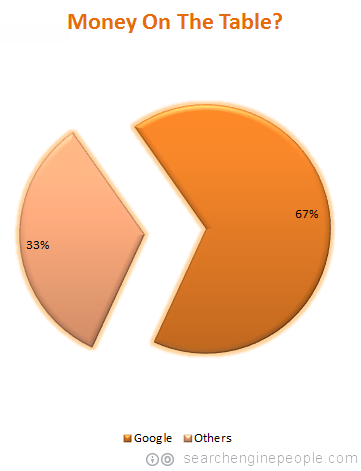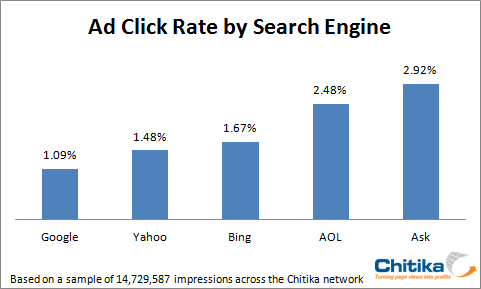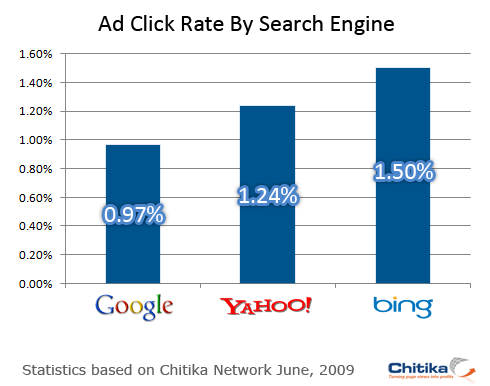US Web traffic tracking company comScore released numbers showing Google receives two-thirds of all search queries (in the USA).

It's only in 2007 that Google broke through the 50% US search queries mark. Which means that Google has increased their search presence by 8.2% in 3 years time.
The difference between 2009 and 2010 is less than 1 percent: 0.9%. Statically not significant.
Whether it is the markets that have settled, shifting web usage trends (as Facebook has surpassed Google as the US' most visited web site) or simply stagnation in growth, Google's market mindshare seems to be flatlining a bit.
The Law of Big Numbers
If Google has 2/3 of the (US) search market it follows that others, whoever they are, have 1/3 of that (US) search market. With 16.4 billion searches performed in the month of December alone we're talking about more than 5 billion US searches done somewhere else than on a Google property.

Get It Where You Can
While your traffic reports will also reflect that Google is a major traffic driver – to make an understatement – your conversion reports may show that other sources provide more bang for their buck.
For example, Chitika's June 2010 study showed Bing users are more likely to click on an ad.
It's in line with their 2009 stats which Techcrunch worded as Are Bing Users 50 Percent More Likely To Click On An Ad Than Google Users?
What This Means For You
Search engine optimization is non-exclusive. There is no choice to be made for Google, against Bing – or the other way around.
The differences between the search engines are for the most part not major enough to warrant search engine specific versions of your site or pages.
At the backend of your business you should look at the demographics of each traffic source; who are they, where do they come from, and what do they do.
In today's search tech these search share stats mean less than they used to. Business-wise the search share stats remain interesting academically; is the online economy served well with this market dominance? does Google provide users enough value that when they come to your site they feel it's a good match or are they irritated? (when) will Google be overtaken by something else?


